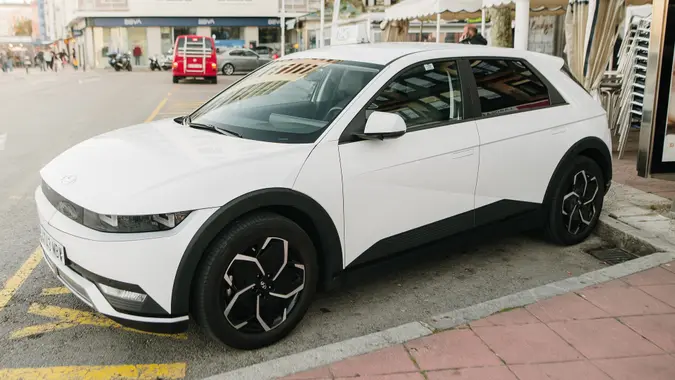Cars Are the Number One Wealth Killer: 11 Ways Your Vehicle Is Draining Your Wallet

Commitment to Our Readers
GOBankingRates' editorial team is committed to bringing you unbiased reviews and information. We use data-driven methodologies to evaluate financial products and services - our reviews and ratings are not influenced by advertisers. You can read more about our editorial guidelines and our products and services review methodology.

20 Years
Helping You Live Richer

Reviewed
by Experts

Trusted by
Millions of Readers
We all know that owning a car comes with significant expenses, but many people don’t realize just how much of a financial drain their vehicle can be.
In fact, for many people, their car is the single biggest wealth killer. Here are five ways your vehicle is draining your wallet.
Depreciation
As soon as you drive a new car off the lot, its value starts to decrease. According to the AAA, a new car loses an average of $3,334 in value during the first year of ownership and about $20,000 over five years. That’s a significant loss of wealth, especially considering that many people finance their vehicles, which means they are paying interest on a depreciating asset.
Financing Costs
Speaking of financing, the interest on a car loan can add up quickly. For example, if you finance a $30,000 car at a 6% interest rate for 60 months, you will end up paying $4,632 in interest over the life of the loan. That’s money that could have been invested and grown over time.
Insurance
Car insurance is a necessary expense, but it can be a significant one. According to the National Association of Insurance Commissioners, the average annual cost of car insurance in the United States was $1,056 in 2019. And if you have a less-than-perfect driving record or live in a high-cost area, you could be paying much more.
Maintenance and Repairs
Cars require regular maintenance to keep them running smoothly, and even with proper care, things can go wrong. The AAA estimates that the average annual cost of maintenance and repairs for a new vehicle is $1,186. And as your car gets older, those costs are likely to increase.
Fuel
Finally, there’s the cost of fuel. According to the U.S. Energy Information Administration, the average price of regular gasoline in the United States was $2.60 per gallon in 2020. If you drive an average of 12,000 miles per year with a vehicle that gets 25 miles per gallon, you’ll spend about $1,248 on gasoline each year.
Parking
Whether it’s paying for a parking spot, paying for a parking permit, or getting a parking ticket, the costs associated with parking your vehicle can add up quickly. According to a study by INRIX, the average driver in the United States spends $1,035 per year on parking.
Tolls
Depending on where you live and where you drive, tolls can be a significant expense. The International Bridge, Tunnel and Turnpike Association estimates that Americans spend $15 billion on tolls each year.
Fines
Speeding tickets, red light tickets, and other traffic fines can be a significant expense for some drivers. According to the National Motorists Association, the average speeding ticket in the United States is $150, and the total cost of speeding tickets each year is $6.2 billion.
Registration and Taxes
Vehicle registration fees and taxes vary by state, but they can be a significant expense. According to the U.S. Bureau of Labor Statistics, the average household spent $238 on vehicle registration and licensing fees in 2019.
Depreciation due to Mileage
The more you drive, the more your vehicle depreciates. According to the AAA, the average cost of depreciation for driving 15,000 miles per year is $3,759.
Wear and Tear
Every mile you drive causes wear and tear on your vehicle, which will eventually lead to repair and replacement costs. For example, tires, brakes, and suspension components all wear out over time and will need to be replaced.
Be Aware: 6 Used Cars To Stay Away From
Owning a car comes with significant financial costs, from depreciation and financing costs to insurance, maintenance, and fuel. It’s important to consider all of these expenses when deciding whether or not to purchase a vehicle and to budget accordingly if you do decide to buy. Remember, the true cost of a car is not just the sticker price.
Editor's note: This article was produced via automated technology and then fine-tuned and verified for accuracy by a member of GOBankingRates' editorial team.
 Written by
Written by  Edited by
Edited by 

























